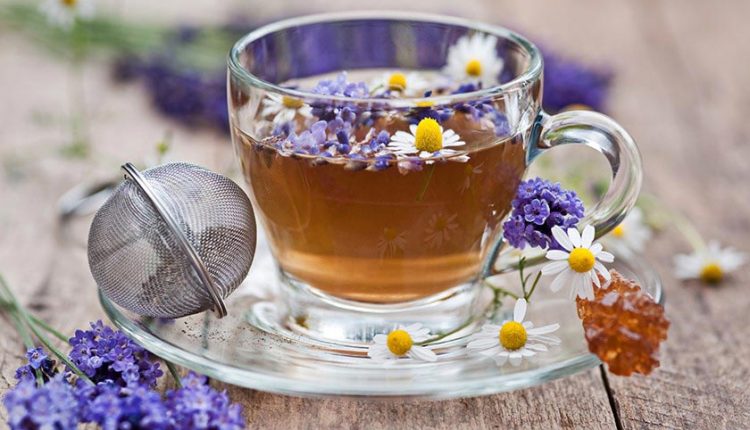
Sleep Like a Baby with These Bedtime Teas
A healthy body and mind are equally dependent on sleep. Sleep is just as vital to our physical and emotional well-being as it used to be when we were younger. Getting a good night’s sleep helps us develop concentration and memory, allows our body to repair any cell damage during the day, and helps strengthen the immune system.
Sleep patterns usually change as we age; we may become sleepy earlier, wake up earlier, or sleep for shorter periods. Nevertheless, waking up tired every morning, having disturbed sleep, and experiencing other insomnia symptoms are not part of healthy aging. There are some easy exercises for better sleep for seniors and herbal teas that are effective and can help you fall asleep more easily. Nothing is as soothing as hot tea, especially before bed. You can unwind and relax with some types after a hard day’s work. In addition, herbal tea has long been used as a natural sleep remedy due to its ability to relieve insomnia, stress, and anxiety. This article explores 10 of the best bedtime teas for catching some Zzzs.
What Kind of Tea Helps You Sleep?
Herbal tea can be a great option both day and night, especially if you’re trying to quit drinking caffeine before bed. Drinking coffee has several Pros and cons for seniors; one thing is for sure, if you have trouble falling asleep, you should not drink coffee close to bedtime. Herbal teas like chamomile tea and lavender tea provide a holistic method to reduce fatigue and improve sleep quality. Scientific studies support their use in relaxation and sleeping.
Best Tea for Sleep
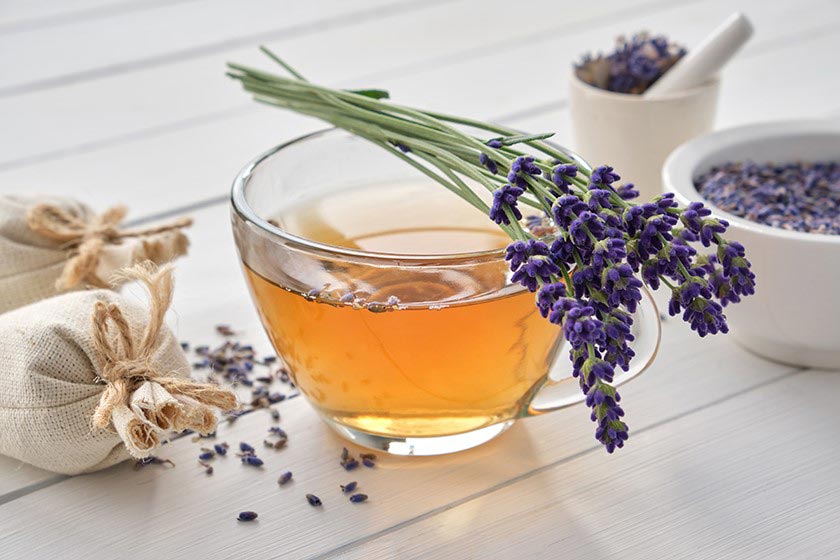
Many factors affect our sleeping habits; what we eat and drink during the day is essential; and when it comes to seniors’ sleep, sipping a good bedtime beverage can be helpful. When it’s time to relax, herbal teas are a popular beverage choice. Over the centuries, they have been used as natural sleep remedies worldwide. Even though results can differ from person to person, these ten herbal teas may be worth trying if you’re looking to naturally get a better night’s sleep.
1. Lavender
Since the Roman era, lavender has been used as an aromatherapy herb to treat ailments. You can drink lavender tea as a bedtime beverage since it is a great way to relax at night. Silexan, a proprietary lavender oil preparation, may help reduce anxiety and provide better sleep to people suffering from anxiety disorders.
2. Magnolia Bark
Magnolia tea is primarily made from the bark, though it may also include dried buds and stems. Thousands of years ago, Chinese herbalists used Magnolia bark to aid sleep. A recent study demonstrated that, through binding to GABA receptors in the brain, honokiol could speed up the process of falling asleep. If you’re taking magnolia bark, you might wake up more during the night, but it takes less time to fall back asleep afterward.
3. Lemon Balm
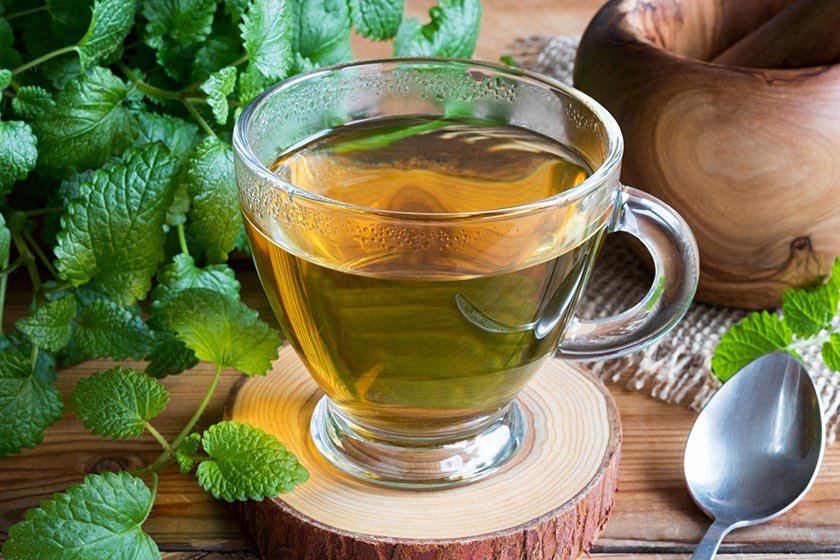
Lemon balm herb tea can be helpful if you have chronic sleep problems. It is in the mint family, and it has a pleasantly sweet and citrusy scent. Lemon balm can be obtained in tea form or as an essential oil. Lemon balm has long been used as an antiviral and antibacterial medicine to treat infections. Additionally, it could help those who have trouble sleeping during the night. You may benefit from a cup of lemon balm tea a night if you struggle with restlessness or anxiety before bed.
4. Chamomile Tea
Besides being one of the best tea for sleep, chamomile tea has many benefits for seniors. Historically, the chamomile plant flowers have been used to treat numerous ailments, including sleep difficulties. Chamomile tea contains several active chemical compounds, including apigenin, which binds to benzodiazepine receptors in the brain to have a calming effect, decrease anxiety, and boost sleep.
5. Valerian Root
The Valerian root has a long recorded history of aiding sleep and reducing stress. Researches reveal that it can treat stress, nervousness, headaches, and heart palpitations. Valerian root extract improves sleep without the side effects of conventional sleep aids. Several people find the taste and odour of valerian root unpleasant. If you want to enhance the taste of your tea, try adding a dash of honey or maple syrup.
6. Passionflower
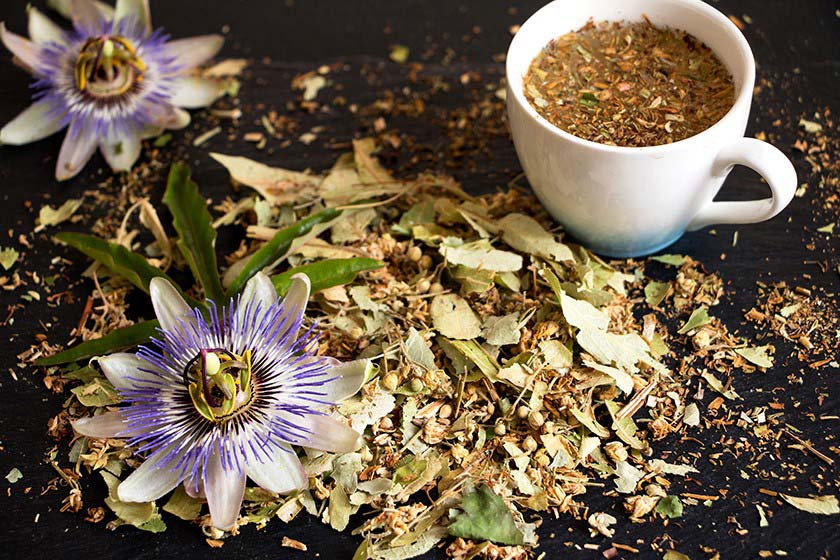
Passiflora plants produce dried leaves, flowers, and stems used to make tea. Historically, it has been used to reduce anxiety and improve sleep. Passionflower contains flavonoids that bind to receptors in the brain that can help reduce anxiety symptoms. Studies indicate that drinking a cup of passionflower tea enables you to sleep better.
7. Peppermint Tea
The best tea for sleep option is peppermint tea. It contains little to no caffeine and can relieve stomach upset as well. The relaxing properties of peppermint tea can be beneficial for relieving muscular tension since it does not contain caffeine.
8. Smith Teamaker Lullaby (Blend No. 40): Best Bagged Tea to Help Seniors Sleep
This bedtime blend is one of Smith Teamaker’s many unique and fresh teas. Many reviewers describe this tea as “delicious” and “soothing,” praising its ability to help fall asleep quickly. This tea has helped a few people relax and feel calm during times of stress. The main ingredients are chamomile, lemongrass, lavender, and ashwagandha.
9. The Republic of Tea Get Some Zzz’s: Best Sweet Tea to Help Seniors Sleep
The tea is gluten-free and kosher. Chamomile is combined with rooibos, a red tea known for its antioxidants, and passionflower, a herb widely used to promote better sleep and relaxation. With the addition of orange peel and stevia, the blend is flavoured with citrus notes. You will not need sugar or honey with this tea; it even seems too sweet to some people.
10. Adagio Teas Daydream: Best Relaxing Tea to Help Seniors Sleep
Daydream does an excellent job of refreshing and calming without overwhelming you with flavour – a remarkable feat with a long list of ingredients. Herbal notes combine to provide a soothing, somewhat elusive flavour. Although you may not fall asleep on the first sip, Daydream is a genuinely relaxing blend.
The lavender and licorice did not seem to make much of an impact on the aftertaste in our testing. This tea does not become cloying despite the tart notes of oranges and peppermint. This tea has a slightly spicy aroma as it steeps, thanks to the marigold flowers. The taste is mild and herbal but not strong. For those who prefer lighter blends, you might enjoy this tea.
Does Ginger Tea Help You Sleep?
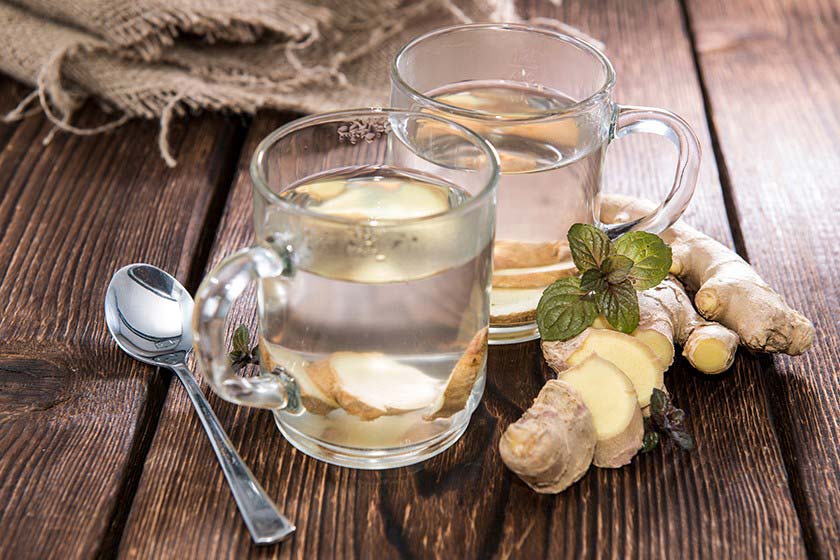
Ginger roots have a knobby appearance and a spicy smell. They can be grated or peeled and added to many dishes as a sweet and spicy addition. Ginger is naturally caffeine-free, so it is unlikely to affect your sleep as caffeine-containing teas such as black or green teas. Mix it with other teas, such as green tea or lemon, or you can make it from fresh ginger root. If you have a problem falling asleep, you should consider making your ginger root tea or consuming a tea made only with ginger root.
How to Make Ginger Tea?
Prepare the tea by peeling and thinly slicing a ginger root (about two tablespoons of sliced ginger root will do). Place the ginger in a pot with 2 cups of boiling water and boil it for 10 minutes. You can boil your tea for an extended period if you want a more pungent taste. You can flavour tea with honey or lemon juice or drink it plain.
Ginger Tea Side Effects
Ginger is generally considered safe to consume when used as a spice. The daily intake of this substance should not exceed 5 grams. It is possible to experience stomach pain, acid reflux, diarrhea, and bloating once you take ginger tea. Because ginger can increase bile flow, some experts caution people with gallstone disease to use it carefully. Ginger consumption may cause a rash in your mouth or stomach if you are allergic to it.
Final Words
In addition to improving focus and memory, a good night’s rest helps replenish your immune system, which in turn protects you from disease. By drinking suitable herbal teas, you can have a better sleeping habit and a healthier life. Be sure to talk to your doctor before beginning a nightly herbal tea routine if you are concerned about possible drug interactions or allergies.

My mother used to drink chamomile tea half an hour before going to bed, and I got into the same habit. The effect is wonderful. Now I’m just used to drinking it before bedtime, or I’ll have trouble falling asleep.
I always drink warm milk before bed; I don’t know if that helps everyone, but warm milk with cinnamon and honey helps me fall asleep more quickly.
I had no idea lavender is an herbal tea. No wonder why I sleep so quickly when I wash my sheets with lavender fabric softener! I’m going to try the tea, but I take metformin. Is it safe?
My husband has sleeping difficulties sometimes; he drinks Masala chai. He doesn’t add black tea because of its caffeine. It’s basically warm milk, honey, and aromatic spices like ginger and cardamom, but it tastes magnificent.
As a senior who likes to drink coffee each day, please prepare an article about the benefits of drinking coffee for older adults. Because I heard much negative news about coffee, so I am worried about it. Because I used to drink coffee and I can’t abandon it!
Thyme tea is a great bedtime tea. It has too many health benefits, such as helping the respiratory system. It tastes exquisite with some honey.
I used to hate any kind of tea. But sleeping was hard for me a few years ago, and my mother suggested drinking a cup of chamomile tea before going to bed. I resisted at first, but then bedtime got so troubling for me that I eventually gave in and did as my mother said. It was so helpful that now I can’t imagine sleeping before drinking a cup.
Well, of course, there are tons of remedies to cure sleep issues, and it’s up to you what you choose. But for me, herbal remedies did a fine job fixing fix it. Valerian deep sleep tea is the most dependable and the safest source to deal with sleep issues. Since last month, I have been drinking this tea, recommended by my son, and can sense a lot of change in my sleeping routine. It’s a mixture of organic herbs, so don’t worry about any side effects. Try it once. You might love it.
Well, I’m not a doctor, but I’ve read valerian root may cause vivid dreams because it contains oil and compounds called iridoid glycosides. There is even evidence that shows it has caused nightmares in some people and increased heart rate! I liked the taste, but it seemed unsafe. I stopped once I experienced the laxative effect; my mouth was also dry a lot. I switched to 3 cups of chamomile tea every day; it is completely safe.